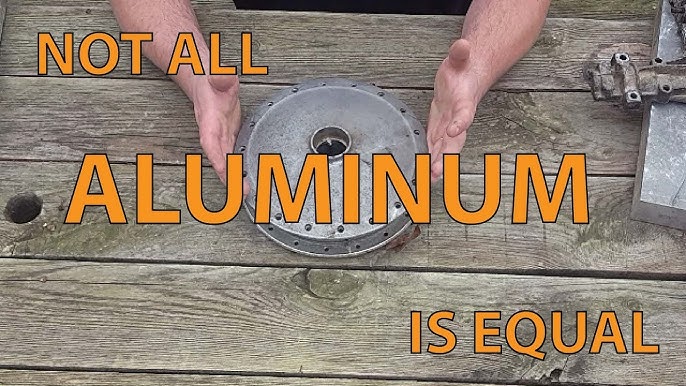What Does Stahl Specialty Company Do?
Table of ContentsAbout Stahl Specialty CompanyStahl Specialty Company Can Be Fun For EveryoneSome Known Details About Stahl Specialty Company Not known Facts About Stahl Specialty CompanyAll About Stahl Specialty Company
Chemical Contrast of Cast Aluminum Alloys Silicon promotes castability by decreasing the alloy's melting temperature level and improving fluidity during spreading. Furthermore, silicon contributes to the alloy's toughness and put on resistance, making it beneficial in applications where resilience is crucial, such as auto parts and engine components.It likewise improves the machinability of the alloy, making it much easier to process into completed products. This way, iron adds to the overall workability of light weight aluminum alloys. Copper boosts electrical conductivity, making it helpful in electric applications. It also enhances deterioration resistance and includes in the alloy's total stamina.
Manganese contributes to the toughness of aluminum alloys and improves workability. It is frequently made use of in functioned light weight aluminum products like sheets, extrusions, and accounts. The presence of manganese aids in the alloy's formability and resistance to splitting during manufacture processes. Magnesium is a lightweight component that supplies stamina and effect resistance to aluminum alloys.
It allows the manufacturing of lightweight components with superb mechanical buildings. Zinc enhances the castability of aluminum alloys and helps control the solidification process during spreading. It improves the alloy's stamina and hardness. It is frequently located in applications where intricate shapes and fine details are essential, such as attractive spreadings and particular vehicle components.
Unknown Facts About Stahl Specialty Company
Due to the fact that aluminum-silicon alloys have great casting residential properties, high gas residential or commercial properties, easy processes, and excellent deterioration resistance, aluminum-silicon alloys are most generally made use of in the die-casting industry in your home and abroad. At the same time, aluminum-silicon alloys are also reasonably early and extensively identified alloys created and utilized in die-casting. After constant study and enhancement, most of the current global mainstream aluminum-silicon alloys have been wrapped up and are absolutely nothing greater than A356, A360, A380, ADC12, B390, and A413.
The main thermal conductivity, tensile toughness, return strength, and elongation differ. Select suitable raw materials according to the efficiency of the target item created. Amongst the above alloys, A356 has the highest possible thermal conductivity, and A380 and ADC12 have the most affordable. The tensile limitation is the opposite. A360 has the very best return stamina and the greatest elongation rate.

Stahl Specialty Company Things To Know Before You Get This
In precision casting, 6063 is appropriate for applications where elaborate geometries and premium surface area coatings are vital. Instances consist of telecommunication rooms, where the alloy's exceptional formability permits for smooth and visually pleasing styles while keeping architectural stability. In a similar way, in the Lighting Solutions market, precision-cast 6063 parts create elegant and reliable lighting fixtures that need detailed shapes and good thermal performance.
(https://www.artstation.com/stahlspecialc1/profile)
It causes a better surface area coating and far better deterioration resistance in A360. In addition, the A360 exhibits remarkable elongation, making it suitable for complex and thin-walled components. In accuracy casting applications, A360 is appropriate for markets such as Customer Electronics, Telecommunication, and Power Tools. aluminum foundry. Its improved fluidness permits elaborate, high-precision elements like smart device housings and interaction tool housings.

In accuracy spreading, light weight aluminum 413 shines in the Consumer Electronic Devices and Power Tools sectors. This alloy's superior deterioration resistance makes it an exceptional choice for outside applications, guaranteeing resilient, resilient items in the mentioned markets.
What Does Stahl Specialty Company Do?
Once you have made a decision that the light weight aluminum die casting process is suitable for your task, a vital next action is making a decision on the most proper alloy. The light weight aluminum alloy you pick will considerably affect both the spreading procedure and the homes of the end product. As a result of this, you have to make your choice reference meticulously and take an enlightened technique.
Establishing one of the most ideal light weight aluminum alloy for your application will certainly mean considering a large variety of attributes. These relative alloy features comply with the North American Die Spreading Association's standards, and we have actually split them into 2 groups. Aluminum Casting. The initial classification addresses alloy qualities that influence the production process. The second covers attributes impacting the residential properties of the end product.
The alloy you select for die casting directly influences a number of elements of the spreading process, like just how easy the alloy is to deal with and if it is susceptible to casting issues. Hot fracturing, likewise recognized as solidification splitting, is a typical die casting issue for aluminum alloys that can cause internal or surface-level splits or fractures.
Stahl Specialty Company - Truths
Certain aluminum alloys are much more susceptible to warm breaking than others, and your choice should consider this. An additional common problem discovered in the die casting of light weight aluminum is pass away soldering, which is when the actors adheres to the die wall surfaces and makes ejection difficult. It can damage both the cast and the die, so you ought to search for alloys with high anti-soldering homes.
Rust resistance, which is already a significant quality of light weight aluminum, can vary considerably from alloy to alloy and is a necessary characteristic to consider depending on the environmental problems your product will be revealed to. Use resistance is one more property commonly sought in aluminum products and can separate some alloys.